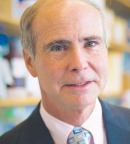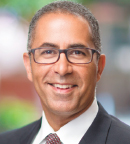With the recent U.S. Food and Drug Administration (FDA) approvals of two chimeric antigen receptor (CAR) T-cell products, this novel approach seems to be moving into the mainstream. The approvals were tisagenlecleucel (also known as CTL019; Kymriah) for the treatment of pediatric B-cell acute lymphoblastic leukemia (B-ALL) and axicabtagene ciloleucel (Yescarta) for the treatment of relapsed or refractory diffuse large B-cell lymphoma (DLBCL).
CAR T-cell therapy research is a beehive of activity in both hematologic cancers and solid tumors, with about 420 ongoing trials of various CAR T-cell therapies in different stages of development. Researchers are looking at targeting different antigens other than CD19 with re-engineered CAR T cells, sometimes two or more (bispecific, trispecific, and even quadrispecific), as well as using various co-stimulatory molecules. As mechanisms of resistance are elucidated, combination approaches are being explored to potentiate efficacy and mitigate resistance. In addition, efforts continue to make the treatment safer, reducing the chances of cytokine-release syndrome and neurologic events.

[CAR T-cell therapy] may represent a new treatment paradigm for relapsed or refractory myeloma.— Kenneth C. Anderson, MD
Tweet this quote
At this year’s American Society of Hematology (ASH) Annual Meeting & Exposition, CAR T-cell therapy is the focus of a number of presentations. ASH President Kenneth C. Anderson, MD, of -Dana-Farber Cancer Institute, reviewed three important CAR T-cell abstracts during a premeeting webinar: two related to lymphoma and one in multiple myeloma.1-3 Presented here is a summary of data from the webinar on these three abstracts. Further details on each of the presentations will be forthcoming in an upcoming issue of The ASCO Post.
“We expect these abstracts to be exciting, due to all the advances in hematologic malignancies and hematologic disorders. CAR T cells are autologous T cells infected with vectors targeted to malignant B-lymphoid cells using various co-stimulatory molecules in the vectors. These T cells are expanded and reinfused [into the patient] as an autologous army against the patient’s leukemia, lymphoma, and myeloma,” Dr. Anderson explained.
“We have seen remarkable responses, even complete responses, in patients treated with many lines of therapy with no other treatment opportunities. Building on the excitement of the FDA approvals, the first two abstracts are about CD19-directed CAR T-cell therapy in the treatment of lymphoma,” he noted.
CAR T-Cell Therapy in Lymphoma: ZUMA-1 Trial
The first abstract described by Dr. Anderson will present 1-year follow-up data from the pivotal long-term ZUMA-1 trial of axicabtagene ciloleucel in 12 patients with refractory aggressive non-Hodgkin lymphoma (NHL, DLBCL, transformed follicular lymphoma, or primary mediastinal large B-cell lymphoma).1 In these patients who had exhausted all other treatment options, the objective response rate was 82%, and the complete response rate was 54% with a single infusion of CAR T cells. Safety was manageable, with grade 3 or higher cytokine-release syndrome reported in 13% and neurologic events reported in 28%. At a median follow-up of 8.7 months, 44% of patients who responded continued to be in response.
At the meeting, long-term efficacy, safety, subgroup, and biomarker analyses will be presented, with a median follow-up of 15 months. Dr. Anderson said the data suggest the loss of CD19 and gain of programmed cell death ligand 1 (PD-L1) expression in tumors may be related to resistance; if this turns out to be true, it will pave the way for future strategies to address CAR T-cell therapy resistance.
CAR T-Cell Therapy in Lymphoma: JULIET Trial
A second abstract focuses on the primary analysis of a global, multicenter, phase III trial called JULIET, which was conducted in 27 countries on 4 continents.2 In this study, 147 patients with relapsed or refractory DLBCL were enrolled for treatment with tisagenlecleucel.
Among 81 patients who received tisagenlecleucel from the U.S. manufacturing site with more than 3 months of follow-up, the objective response rate was 53%, the complete response rate was 39%, and the partial response rate was 13.6%. Among 46 patients evaluable at 6 months, the complete response rate was 30%, and the partial response rate was 7%. The median duration of response and the median duration of survival were not reached. The 6-month probability of being relapse free was 73.5%, and the 6-month probability of overall survival was 64.5%. Overall, 86% had grade 3 or 4 adverse events, and cytokine-release syndrome occurred in 58%. Neurologic adverse events were reported in 12%. No deaths were attributed to tisagenlecleucel.

Cytokine-release syndrome and neurologic events are still a major obstacle with [CAR T-cell therapy]. We need strategies to optimize efficacy and limit attendant cytotoxicity.— Joseph R. Mikhael, MD
Tweet this quote
“Again, cytokine-release syndrome can be severe with CD19 CAR T-cell therapy, but like ZUMA-1, JULIET has promising data in lymphoma. Both studies show that cytokine-release syndrome can be severe with CAR T-cell therapy, but these promising data show that [it] can be used in the real world at centers of excellence in a multicenter trial,” Dr. Anderson said.
“At present, CAR T-cell therapy is reserved for patients with advanced disease who have no other treatment options. Cytokine-release syndrome and neurologic events are still a major obstacle with this treatment. We need strategies to optimize efficacy and limit attendant cytotoxicity. Research is needed to identify alterations in the vector to improve persistence of CAR T cells and improve tumor selectivity,” said webinar moderator and Chair of the ASH Committee on Communications, Joseph R. Mikhael, MD, of the Mayo Clinic in Phoenix.
CAR T-Cell Therapy in Multiple Myeloma
Researchers are studying a different approach in multiple myeloma, using a second-generation CAR T-cell construct targeting a different antigen—B-cell maturation antigen (BCMA)—to redirect T cells to multiple myeloma cells, along with a co-stimulatory molecule bb2121 (known as bb2121 anti-BCMA CAR T-cell therapy).
In a dose-escalation, phase I trial of 21 heavily pretreated patients with the requirement that at least 50% of a patient’s tumor cells express BCMA, the objective response rate was 89%.3 The response rate was dose-dependent. Patients treated at a dose of 15 x 107 had a 100% complete response rate with manageable toxicity, and these responses were ongoing at the time of the webinar.
Cytokine-release syndrome was reported in 71%, mainly grades 1 and 2. Two patients had grade 3 cytokine-release syndrome, which resolved within 24 hours. Cytokine-release syndrome was more common in the higher dose group, but it did not appear to be related to tumor burden.
Minimal residual disease (MRD) activity was achieved in all four patients evaluable for analysis. At the meeting, data on an additional 5 months of follow-up will be presented.
“This study demonstrates that this new treatment has good tolerability. This novel therapy can achieve impressive responses in multiple myeloma with no other treatment options. This novel CAR T-cell therapy has promising efficacy and safety,” Dr. Anderson commented. “This may represent a new treatment paradigm for relapsed or refractory myeloma.” However, added Dr. Mikhael, “the treatment still needs to be optimized and needs more development.”
“At the meeting, all three presenters will discuss how to improve selectivity and activity of CAR T-cell therapy and how to make it safer, reducing toxicity,” Dr. Anderson noted. ■
DISCLOSURE: Drs. Anderson and Mikhael reported no conflicts of interest.
REFERENCES
1. Neelapu SS, Locke FL, Bartlett NL, et al: Long-term follow-up of ZUMA-1: A pivotal trial of axicabtagene ciloleucel in patients with refractory aggressive non-Hodgkin lymphoma. 2017 ASH Annual Meeting & Exposition. Abstract 578. To be presented December 11, 2017.
2. Schuster SJ, Bishop MR, Tam CS, et al. Primary analysis of JULIET: A global, pivotal, phase 2 trial of CTL019 in adult patients with relapsed or refractory diffuse large B-cell lymphoma. 2017 ASH Annual Meeting & Exposition. Abstract 577. To be presented December 11, 2017.
3. Berdeja JG, Lin Y, Raje N, et al. Durable clinical responses in heavily pretreated patients with relapsed/refractory multiple myeloma: Updated results from a multicenter study of bb2121 anti-Bcma CAR T cell therapy. 2017 ASH Annual Meeting & Exposition. Abstract 740. To be presented December 11, 2017.

